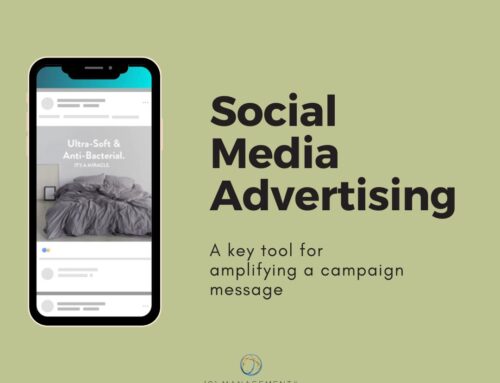You have a wonderful product or service to offer, and you want to make sure as many people as possible know about it.
Aside from savvy social media marketing (which our social media management experts can help you with), you’ll no doubt incorporate ad buys into your marketing plan, whether on social media or more traditional venues.
When planning your campaign, one aspect you might not have given much thought to is the legal implications of the ads themselves.
So here’s a quick tutorial on how to make sure your advertising stays on the right side of the law.
The rule-makers
Both the federal government and the states have enacted various laws and regulations concerning what is and isn’t allowed in ads.
The Federal Trade Commission (FTC) is the main enforcement agency for federal rules. It also creates regulations designed to implement laws that Congress has charged it with enforcing.
States can also enact laws dealing with advertising, which are enforced by each state’s attorney general, district attorney, and/or a consumer protection agency. In addition, consumers individually or in class actions can sue companies for false advertising.
Understanding the term
So what is “false advertising?”
In general, any claim you make in your ads that can be shown to be untrue in some way constitutes false advertising.
If you sell a supplement that you claim can cure cancer, for instance, that can be shown to be an outright false claim. Both the FTC and the state can stop you from making such a claim in your ads, either through a court order or a lawsuit or both.
But what if you sell a supplement that you say contains an herb or vitamin that “has been shown to cure cancer”? That falls under the heading of “misleading” advertising, because even though you didn’t say your product cures cancer, you did say it contains something that might.
Another dangerous area for advertisers is the “unfair” ad. This is an ad that will harm consumers, either by selling them something that doesn’t work or could actually cause harm. The proverbial “snake oil” is the classic example of a product that a) doesn’t contain “snake oil” and, b) doesn’t cure anything.
Any health claims you make must be substantiated by actual studies.
Other advertising pitfalls
Those examples are pretty clear-cut, but there are other ways advertisers can run afoul of the law. Here are some of the most common.
 Deceptive pricing
Deceptive pricing
If you advertise a product as being on sale, it must be a lower price than you actually sold it for in the past. If you’ve never sold a pair of shoes for $100 but advertise them now at $75 and claim they’re “25 percent off,” that’s deceptive pricing.
Bait and switch
This is a common tactic around the holidays, both in stores and online, in which an ad will offer a hot item for a ridiculously low price just to lure someone in the door or onto their website. Then a customer hears, “oops, we ran out of the item.” You must intend to sell the advertised product at the advertised price, and have enough in stock to meet reasonable consumer demand. Otherwise, state clearly in the ad that “quantities are limited,” or similar wording.
False comparisons
If you compare your product or service to your competitors, any claims you make must be fair and include all the features and benefits, not just a few. For example, if you say you offer the cheapest oil change in town but charge extra for the oil whereas your competitors don’t but you don’t say that, the ad can be shown to be false and your competitor can sue you.
“Free” must mean free
Buy-one-get-one (BOGO) offers are popular with customers, but you can’t increase the price of the item to cover the cost of the second (see Deceptive pricing, above). Additionally, if the customer has to pay more to get the free item, say so in the ad (“Just pay shipping and handling”).
Relationships
If you write favorably about a product and receive any kind of compensation from the company, you must disclose this on your website, blog, posts, tweets, etc. Not doing so is deceptive online advertising, according to the FTC. Similarly, if you pay someone to endorse your products, you must say so. And be sure to get permission before posting positive testimonials or reviews.
Visuals
Photos and videos are a huge part of social media, so be sure any posts of your product or service are honest. For example, if you sell a product to minimize age spots, you have to show the actual before-and-after results, not a photo with the age spots airbrushed out.
There are so many laws, rules, and regulations involved in running a business, it’s hard to stay on top of them all. When using ads, in general just be accurate in what you claim. If you have any questions about a claim you want to make, it’s best to consult a lawyer first.
And for the most up-to-date and comprehensive advice on how to get the most from your digital advertising and marketing, contact our social media management experts today!










Leave A Comment